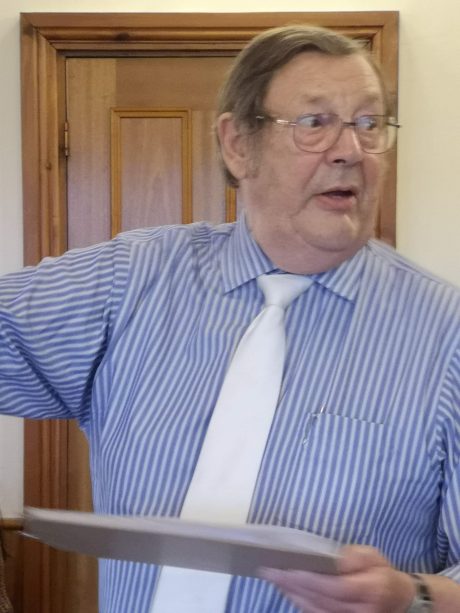
My godfather, the Reverend Canon Christopher Smith, passed away peacefully at home on 11th January 2025. He was eighty years old, and had been suffering from lung cancer for some time.
I was, and am, sad about his death. Christopher was an ebullient, caring person, who lit up the lives of many thousands of people in his professional and personal life. He devoted his life to the teachings of Christ and the Church of England. He was a theologian and a man of the people.
The power of ritual
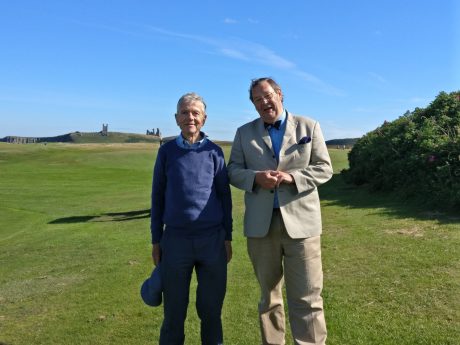
Dressed in his white vestments of his religious vocation, Christopher n his white robes scattered the ashes of my grandparents, Cecil and Ruth Gilbert, over the lawn of Christon Bank, the remote Northumbrian farmhouse which they used as a second home for many decades. Their ashes were scattered over the graves of the pets that my grandparents adored; these graves were lovingly constructed by Ruth and Cecil to honour the many pets they had over the years. Christopher knew many of them!
Christopher spoke from memory from the liturgy and asked us to remember the life of Cecil and Ruth. There was a sense, even though I am not religious, that their spirits had been laid to rest. Christopher’s voice travelled across the fields on that blue day. There was a sense of closure and peace, which Christopher’s presence brought to the occasion.
Christopher had read theology at Cambridge during the 1960s, and was my father’s oldest and closest friend. He knew Ruth and Cecil very well. He had delivered the sermon at their funeral in Embleton church in February 2003. Following that turbulent time, their ashes were never scattered, and so some years later, a family decision was made to scatter them. What better person than Christopher to make it a solemn and life-enhancing occasion?
He had seen many, many deaths, and had the compassion of a man steeped in the best aspects of the traditions of the Church of England and Christ’s teaching. He knew how to hold a ritual very well.
I learnt from him this; that ritual needs to be invested with both a profound seriousness and playfulness. He was so familiar with them — weddings, funerals, communions, sermons, bingo — that he carried them off with the ease and embodied knowledge of someone who was both relaxed and earnest. A rare combination.
The importance of conviviality
He and his family, his wife Christine, were a very generous couple, opening their home to many different visitors and guests. I was one of them on the odd occasion. I can remember very vividly in 1986 going to visit Liverpool university on an open day, and then going to visit Christopher in his vast vicarage in Walton. I was very much out of my comfort zone, not used to travelling back then in the way many eighteen year olds are now. I got lost and went to Woolton, not Walton, and eventually arrived very frazzled on Christopher’s doorstep, after navigating my way through the spooky graveyard near his house. It was dusk, and I was so glad to see Christopher’s cheery, large presence in the doorway. He immediately sensed my anxiety, and said, ‘I say, you do look rather out of sorts, old chap! Come in and have some lemonade, or a cup of tea, or maybe something even stronger, you’re not a child any more, or are, old fruit!?’
The significance of prayer
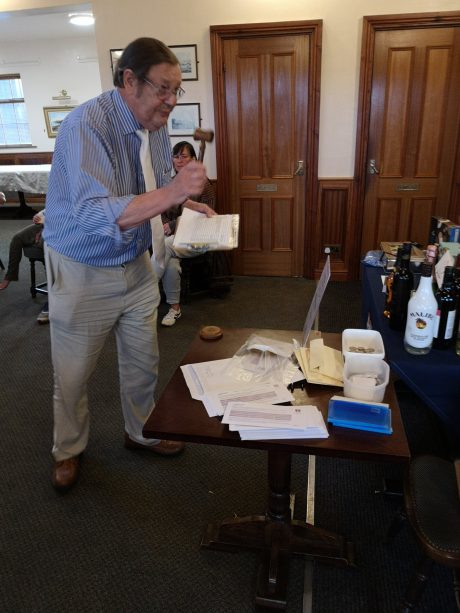
Christopher was an authentically religious man, in a world where often spirituality is mobilised for worldly gain. This said, he had important roles in the church, and, at times, would minister to upper echelons of British society. He was a Chaplain Royal to the Queen. As part of his duties he was required to give sermons in the chapels of St. James’s Palace.
But he wasn’t arrogant or snobby about this, and I got the sense, even though he enjoyed fine wines and good food at times, he was happiest working with his parishioners and so-called ‘ordinary’ people. I remember accompanying him on his rounds around Liverpool, visiting youth clubs, pubs, playgrounds, talking to people with a rare ease. Everyone liked him. He was both holy and approachable. He was an amazing table tennis player; he scarcely moved, but would always knock the ping-pong ball back at you.
He had a routine for praying which he told me about, which involved praying in quite a strict cycle for people who were significant to him. I, as his godson, was one of them. So he prayed for me regularly throughout his life. This makes me think about the value of prayer as a non-religious person. Again, it had a ritualistic quality, a listing of names, a sense of intoning people in the imagination, bringing their humanity into his thoughts, their presences.
Sometimes you can look too hard
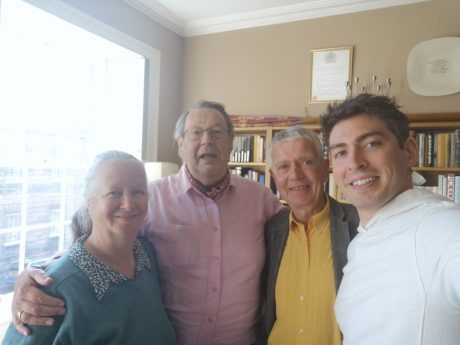
One of the many stories Christopher would tell was about the person looking for a valuable gemstone on a beach. He became so obsessed with looking for it, that when he did actually pick it up, he threw it away! Christopher would tell this story replete with arm gestures and in his inimitable voice.
I like this story on many levels. For me, it’s a warning about being too obsessive, too carried away with the minutiae of life, and not stepping back and appreciating the gemstones.
Now I must a take a moment to pause, and treasure the gemstone that was Christopher. I and many people will miss him terribly.
Details of his funeral can be found here: https://christopher-milne-smith.muchloved.com/

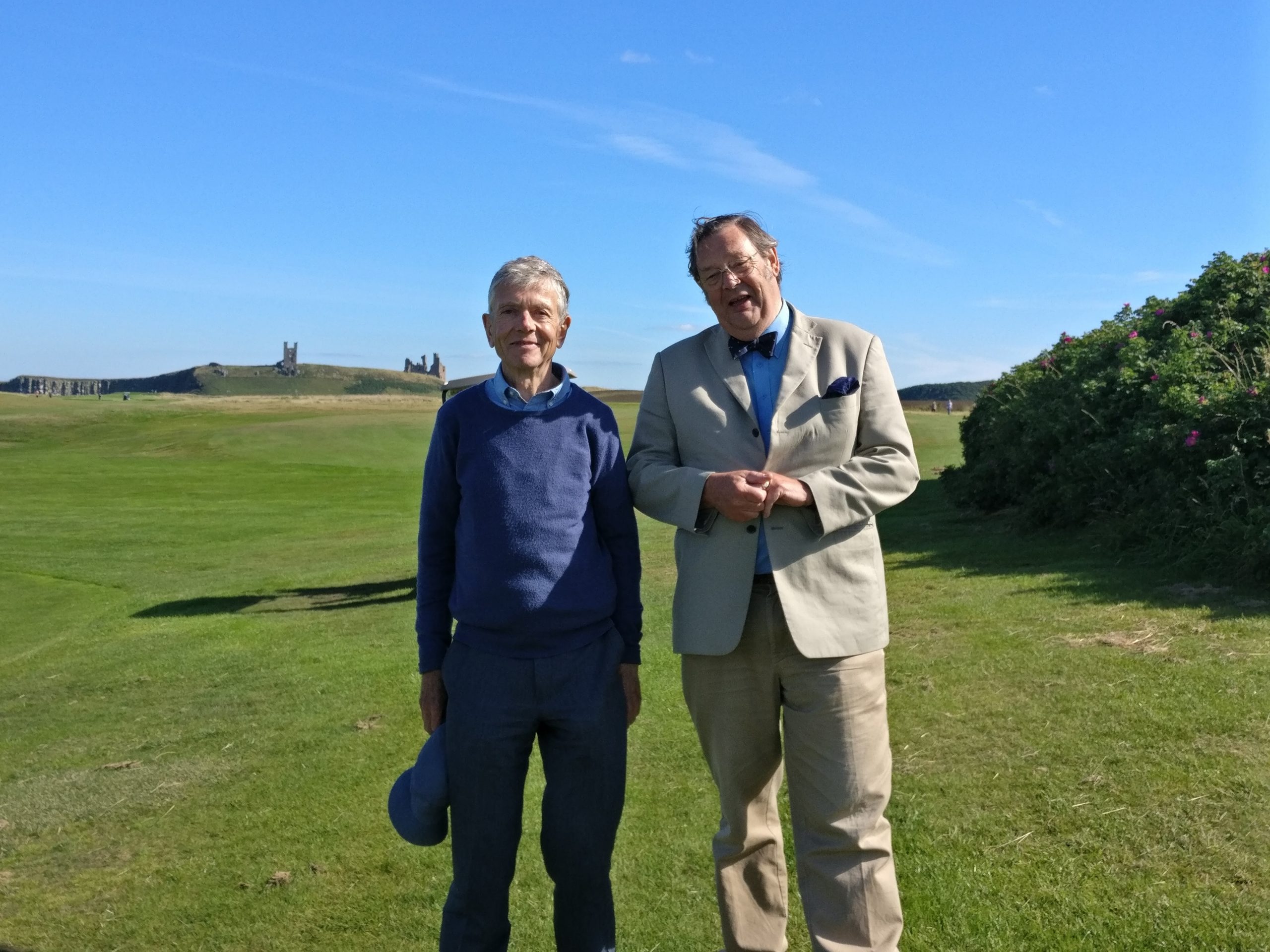
Leave a Reply